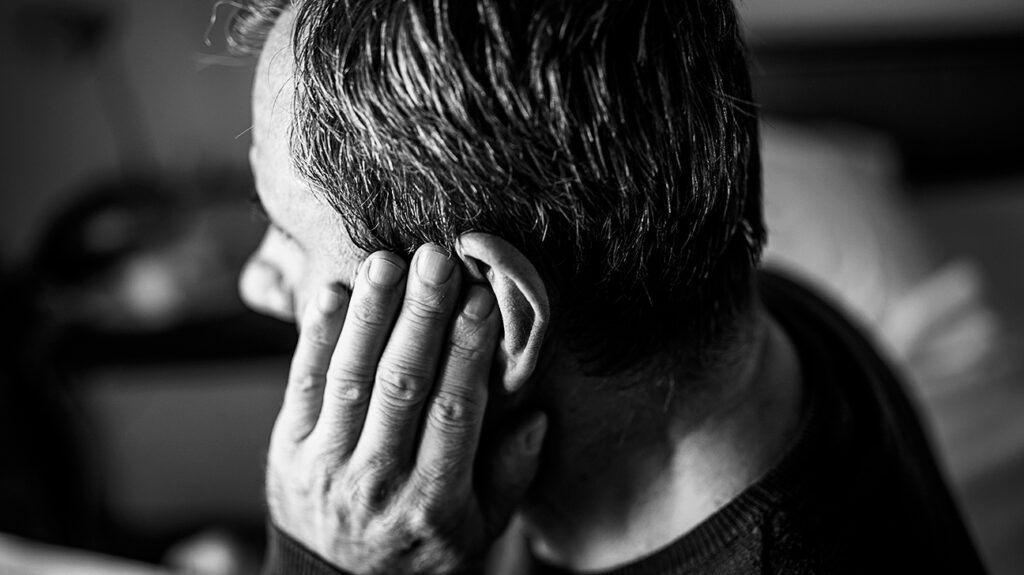Temporary tinnitus causes short-term sounds in the ears, such as ringing, buzzing, or hissing. Potential causes include exposure to loud noise, earwax or other obstruction, and certain medical conditions.
Temporary tinnitus can resolve on its own without lasting effects. Understanding its causes and how to prevent it may help people protect their ear health and hearing.
In this article, we’ll delve into temporary tinnitus, its symptoms, potential causes, relief strategies, prevention tips, and when to seek medical advice.

Tinnitus is the perception of sound in the ears or head that does not have an external source, meaning other people cannot hear it. It is a common hearing condition, affecting approximately
Temporary tinnitus lasts for a short period of time. While the exact sensation varies among individuals, common symptoms include:
- ringing, buzzing, humming, or hissing noises in one or both ears
- stress or irritation due to the persistent noise
- potential difficulty getting to sleep
Temporary tinnitus can vary in intensity and pitch. It may occur sporadically or persistently throughout the day.
Various factors can trigger temporary tinnitus. One of the most common is exposure to loud sounds.
According to the Centers for Disease Control and Prevention (CDC),
Sources of loud noise could include:
- concerts
- loud music
- heavy machinery
- firearms
When a person has ringing ears after hearing a loud sound, this can mean the noise has damaged the delicate structures of the inner ear, leading to tinnitus.
Other possible causes of temporary tinnitus
- Hearing loss: Hearing loss for other reasons, such as aging, can sometimes result in tinnitus.
- Ear obstruction: A buildup of earwax or an ear infection can obstruct the ear canal, sometimes leading to temporary tinnitus.
- Certain medications: Some medications can cause tinnitus as a side effect, especially at high doses. Some examples include nonsteroidal anti-inflammatory drugs (NSAIDs), some antibiotics, and some antidepressants.
- Underlying health conditions: Conditions such as jaw joint disorders, migraine, anemia, diabetes, and conditions affecting the blood vessels can contribute to tinnitus.
Temporary tinnitus can go away without medical intervention. Lifestyle modifications, such as the avoidance of known triggers, may help recovery.
However, if symptoms persist or worsen over time, a person may have tinnitus that is more long term, or chronic.
According to the American Tinnitus Association, approximately 25 million Americans have chronic tinnitus. If a person continues having exposure to loud noises, has health conditions that affect the ears, or develops hearing loss, temporary tinnitus may be more likely to become chronic.
Early intervention and management strategies can help mitigate the impact of chronic tinnitus on daily life.
There is no fast way to get rid of temporary tinnitus. However, there are ways people can manage the symptoms or mask the sound. These include:
- Background noise: Low volume background sounds can help distract a person from tinnitus. People may find it helpful to listen to quiet music, nature sounds, or white noise.
- Stress management: Relaxation techniques, such as deep breathing, meditation, yoga, or tai chi, may help reduce any stress and anxiety about having tinnitus.
- Avoiding triggers: Avoiding loud sounds may allow temporary tinnitus to get better or stop it from getting worse. Some people also find it helpful to avoid caffeine or smoking.
People with chronic tinnitus may benefit from treatments
- sound therapy, which can “retrain” the brain to focus less on tinnitus
- hearing aids, for those with hearing loss
- cognitive behavioral therapy, to help a person with the mental health effects of tinnitus
While it is not possible to prevent all cases of tinnitus, taking proactive measures to protect the ears can reduce the likelihood of developing temporary or chronic tinnitus. It may help to:
- Avoid exposure to loud noise: Minimize exposure to loud environments. Maintain a safe distance from sources of noise, such as speakers or machinery, and use ear protection, such as earplugs, when necessary.
- Monitor medication side effects: Be aware of potential side effects of medications. Consult a healthcare professional if there are any changes in hearing or tinnitus after starting a new medication.
- Treat underlying conditions: If a person has any other conditions that could contribute to tinnitus, addressing these may help them avoid this symptom in the future. For example, people who have persistent earwax buildup may need removal from a doctor. Do not attempt to do this at home.
- Regular hearing checkups: Regular hearing assessments with an audiologist can help monitor changes in hearing health and address any concerns promptly.
While temporary tinnitus can resolve on its own, it is advisable to speak with a doctor if any of the following occur:
- The symptoms do not get better or worsen over time.
- Symptoms such as hearing loss, dizziness, or pain accompany the tinnitus.
- Tinnitus occurs suddenly without an identifiable cause.
- The symptoms interfere with daily activities, quality of life, or mental health.
- A person has symptoms of a blockage or infection.
Do not insert objects into the ear to try to unblock them, clean them, or relieve tinnitus. This can cause damage to the ears. If there is an obstruction, speak with a doctor.
Temporary tinnitus is when individuals hear noises in the ears that then go away. The noise may resemble ringing, buzzing, hissing, or other sounds.
While
By adopting lifestyle modifications, seeking professional guidance, and practicing hearing protection, individuals can minimize the impact of temporary tinnitus on their daily lives and promote overall ear health.
If symptoms persist or worsen, seek a medical evaluation to rule out underlying conditions and explore treatment options.
